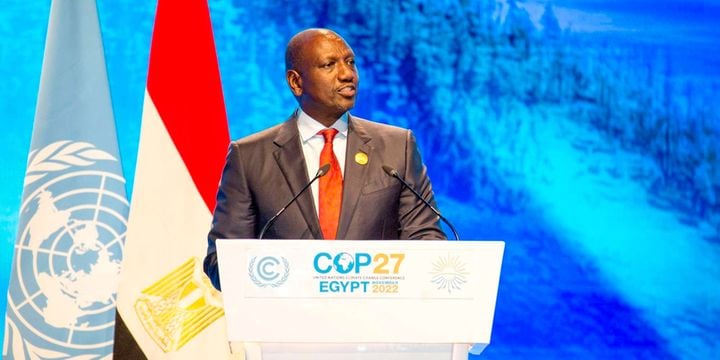How Africa emerged out of COP27 climate negotiations with an ‘empty bucket’

What you need to know:
- By the end of day one of COP27,Africa was not amused .
- On that Sunday, African delegates suffered shock and heartbreak after they were informed that an agreement had been reached after intense negotiations to have loss and damage as an agenda which involves discussing whether rich nations who are the biggest polluters should compensate poor countries who are the most vulnerable to climate change for their suffering can only be done ‘no later than 2024’.
The year 2022 saw Africa play host to the world’s biggest climate change meet, the United Nations Climate Change Conference (COP2) in Sharm el-Sheikh , Egypt which had been was largely touted as the‘ African COP’.
Armed with a solid six point-plan carefully crafted jointly by the African Group of Negotiators (AGN) , experts meant business and were hopeful that, by the end of the two weeks global meet , the continent would have historic and solid things to write home about.
“There are high expectations that the ‘African COP’ will deliver substantive progress and implementable climate actions on the priority issues for Africa and other developing countries, including on adaptation, loss and damage, delivering on the pledges on climate finance, with the ultimate aim of correcting the injustice and getting the world on a path to a secure and safe climate future,” AGN chair Ephraim Mwepya Shitima said.
He had his fingers crossed while Kenya’s Cabinet Secretary for Environment and Forestry, Ms Soipan Tuya, reminded them the country was suffering its worst drought in 40 years.
“The knowledge and technology of how we cut emissions and adapt to climate impacts is known, what we need is the political will to deliver the finance to allow them to happen,” the Cabinet Secretary said.
But by the end of day one of COP27,Africa was not amused .
On that Sunday, African delegates suffered shock and heartbreak after they were informed that an agreement had been reached after intense negotiations to have loss and damage as an agenda which involves discussing whether rich nations who are the biggest polluters should compensate poor countries who are the most vulnerable to climate change for their suffering can only be done ‘no later than 2024’.
President William Ruto, who was speaking on behalf of the continent, called out the global west over what he described as ‘skirting around issues and delay tactics’ in sorting out regions such as Africa who bear the biggest the brunt of the impacts of climate change.
The President further disclosed that, by 2050, climate impacts could cost African nations $50 billion annually. Speaking exclusively to the Nation after week one of the global conference , Mr Mohammed Adow who is a climate justice advocate and the director of Nairobi-based energy and climate think-tank Power Shift Africa, was not amused by how events were unfolding either.
In Mr Adow’s words , the first week of the global meet was a waste.
By the end of the two weeks , after 48 intense hours of negotiations, the world’s biggest climate meeting finally adopted the resolution to set up a ‘ loss and damage’ fund for vulnerable communities that are bearing the brunt of the climate crisis.
A high placed source who was on the global negotiating table all through disclosed to the Nation that the delay in bringing the global meet to an end was caused by mainly two issues.
First,it was because Parties had major unresolved issues with the mitigation work programme recommendations and secondly , Iran , Russia and Saudi Arabia kept dragging the negotiations.
It was, however, interesting to note that new language including “low emissions” energy alongside renewables as the energy sources of the future is a significant loophole, as the undefined term could be used to justify new fossil fuel development against the clear guidance of the intergovernmental Panel on Climate Change (IPCC) and the International Energy Agency (IEA).
This came after 48 hours of intense endless negotiations that followed by what was a very long night of long knives as parties kept on disagreeing to agree on almost everything including commas and full stops in the COP 27 draft text.